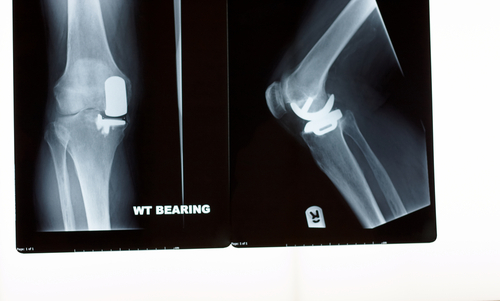Robotics-assisted knee replacement surgery empowering patients' lives: Expert
PTI Jun 12, 2018
Dr. Ashok Rajgopal, who heads the Fortis Bone and Joint Institute at FMRI, Gurgaon, has completed almost 50 cases using the NAVIO PFS Robotics Surgical System.

Recently, a 56-year old woman who had endured two years of knee pain and difficult movement on a day-to-day basis has finally begun to feel better after getting a partial knee replacement. Degenerative knee arthritis in her left knee had made her try all kinds of balms, lotions and tablets to no avail for those two years. But it has all changed after a simple but innovative surgical procedure.
The robotics-assisted knee replacement was performed by the renowned Orthopedic surgeon and Padma Shri recipient, Dr. Ashok Rajgopal, who heads the Fortis Bone and Joint Institute at FMRI, Gurgaon. For the patient, Dr. Rajgopal used the NAVIO PFS Robotics Surgical System, which is an advanced generation robotics-enabled system for joint replacement.
"We have done almost 50 cases with this system so far. In over 30 years of my global experience performing knee replacements with all types of technologies, I am very impressed with the precision and superior patient outcomes with NAVIO." said Dr. Rajgopal. "After I started using the system last year, my physiotherapist who has been with me for over two decades, asked me what I was doing differently with the patients. She was unaware about the Robotics system being used for the surgeries but she could see a marked difference in the pain relief, speed of recovery and range of motion of these patients, immediately after their surgery."
Busting popular myths, Dr. Rajgopal adds, "It is still me doing the surgery, not the robot. But the robotics-enabled artificial intelligence helps achieve more precision and accuracy with the cuts and preserve more natural bone, reduce blood loss, whilst ensuring a well-balanced knee.
The NAVIO robotics system helps create a precise image of the knee, using a robotics-assisted hand piece that relays patient-specific information to an advanced computer program. The process creates a 3-D model of the joint, eliminating the need for a CT scan or MRI prior to the operation. This helps in customizing each surgery specifically to the requirements of the patient, because every knee is unique.
At the end of a surgery, I see that the knee implant is almost custom-fit for the patient with total accuracy - this leads to a more natural feeling pain-free knee and patients often forget that they have had a knee replacement at all." The patient is thrilled with her new knee, and the speed with which she recovered and was able to get back to her daily activities.
She says, "I had my surgery on a Monday morning and I was home by Tuesday evening, which is amazing. My sister got operated a couple of years ago and she was in the hospital for five days. I am so glad to be back to my normal life and mobility, which was robbed by arthritis. This international technology coming from the US was made available to me in Delhi itself. It could not have been better than that." As Dr. Rajgopal sums it up, "Patients first, one must never stop moving."
-
Exclusive Write-ups & Webinars by KOLs
-
Daily Quiz by specialty
-
Paid Market Research Surveys
-
Case discussions, News & Journals' summaries